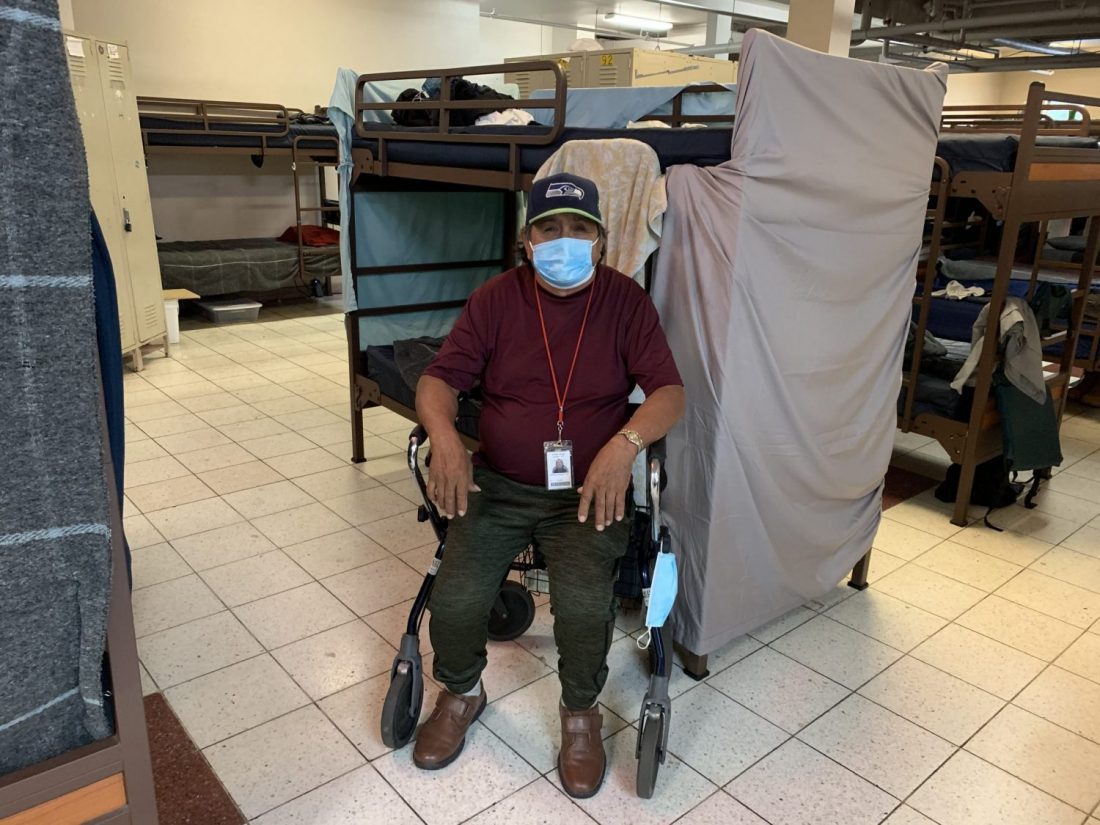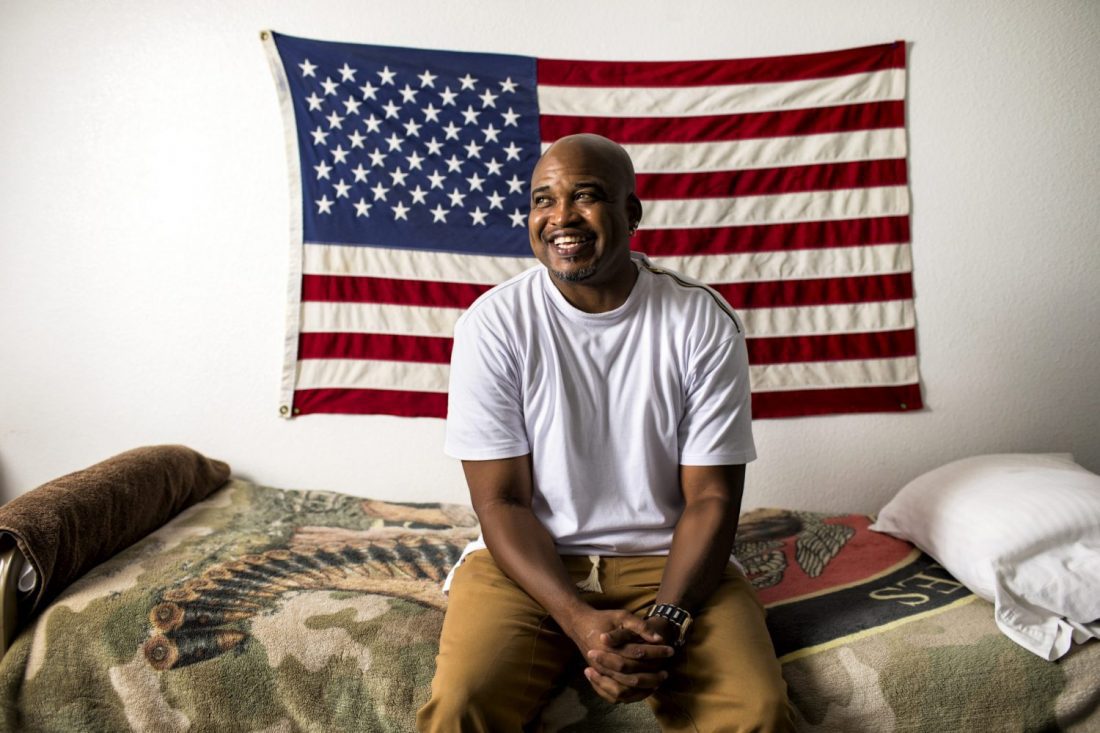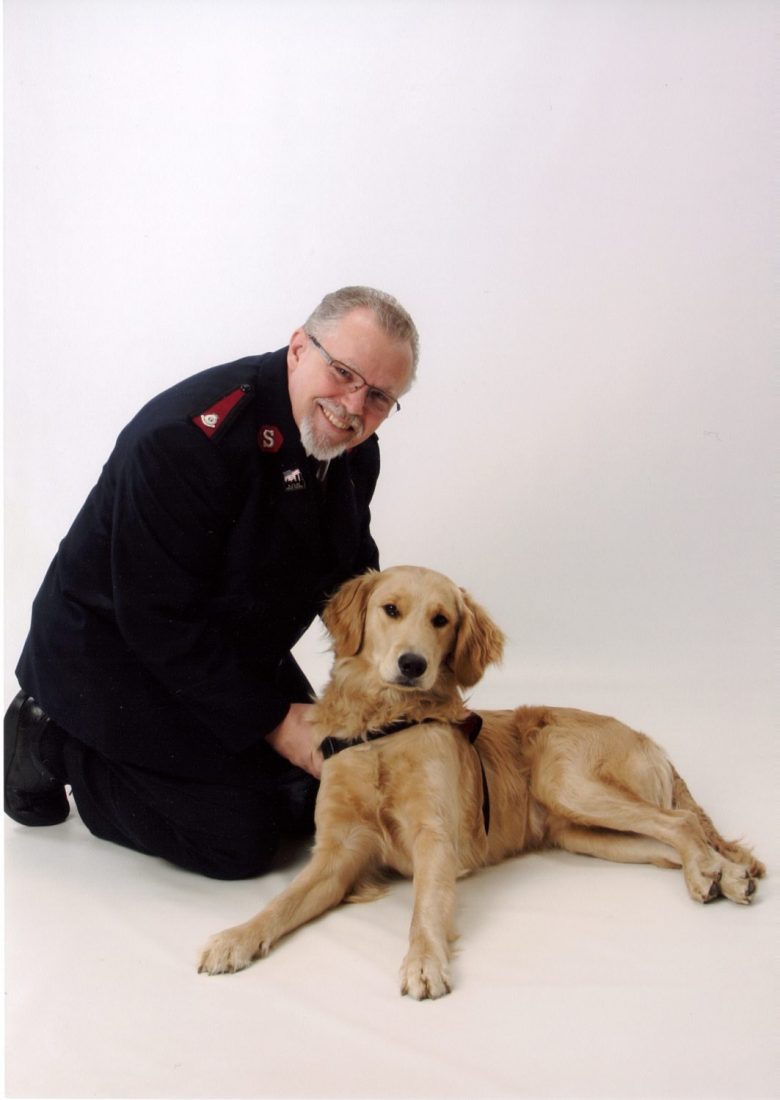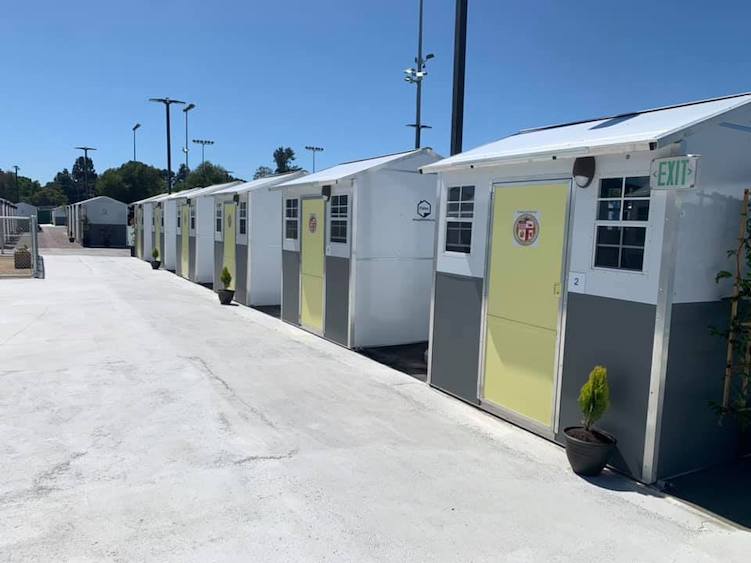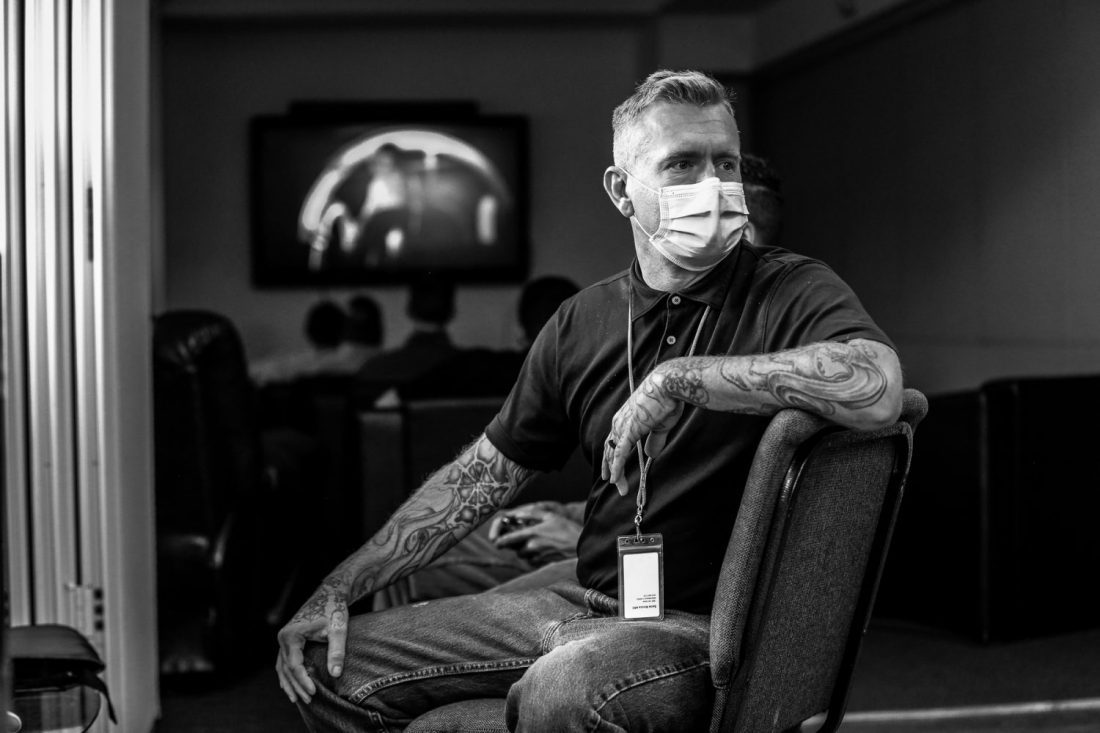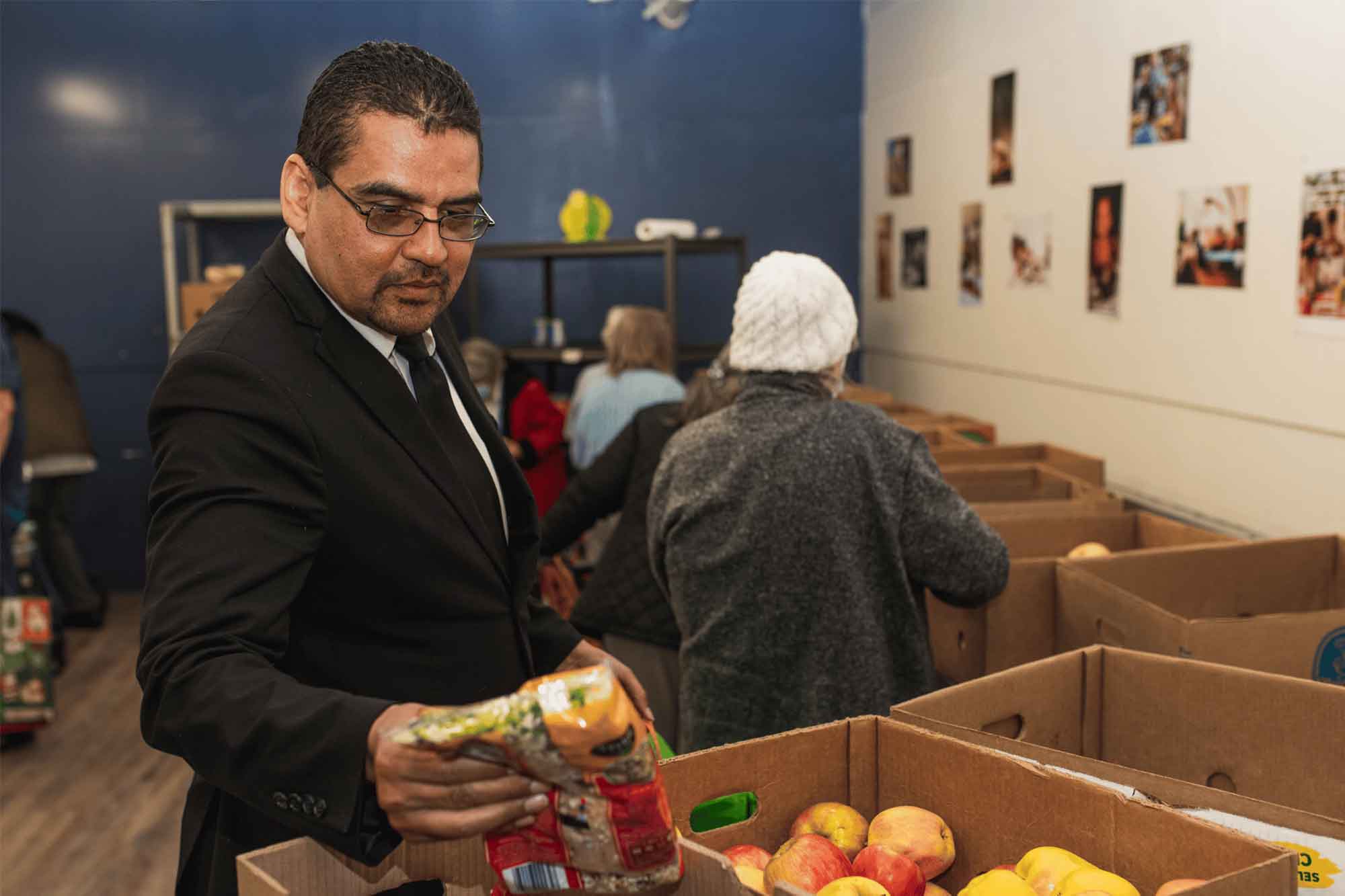Listen to this article
Listen to this article
Loading
Play
Pause
Options
0:00
-:--
1x
Playback Speed- 0.5
- 0.6
- 0.7
- 0.8
- 0.9
- 1
- 1.1
- 1.2
- 1.3
- 1.5
- 2
Audio Language
- English
- French
- German
- Italian
- Spanish
Open text
fighting to keep veterans safe, healthy during covid-19. seattle’s william booth center is recognized nationally by the va as best practices during the covid-19 pandemic. seattle’s william booth center (wbc) provides housing and case management for civilians and veterans experiencing homelessness who identify as male, upholding the salvation army’s commitment to care for those who sacrificed to serve their country. the us interagency council on homelessness estimates that just over 9 percent of all adults experiencing homelessness in the u.s. are veterans. in seattle and king county, where the william booth center is located, veterans make up around 7 percent of all adults experiencing homelessness. when covid-19 struck, the wbc met the heightened challenge to keep these men safe and healthy, making changes that have since been recognized nationally by the va as best practices. “it’s an honor to serve our veterans, as they have given so much of their lives in service to others,” seattle social services director captain felicia grant said. wbc is a low-barrier, low-demand, enhanced shelter and transitional living program, with funding from a number of sources. it runs six different programs—two of the largest dedicated to veterans—who comprise about two-thirds of the center’s 164 occupants. the veterans transition program, a va-funded transitional living program, currently serves 38 high-needs veterans. the king county veterans program serves 45 men in an enhanced shelter program. “the william booth center works with veterans that have been unsuccessful in other programs,” said brian neumann, wbc program manager and an air force veteran himself. “we rarely turn anyone away.”. sheltering in hotels. to best serve its veteran clients during the pandemic, the wbc was among the first in the state of washington to utilize cares act funding in order to safely shelter some of its most vulnerable veteran residents in a local hotel, and also collaborated with the va’s homeless patient aligned care team (h-pact) and king county public health to create innovative solutions during a time of crisis. “in march, when it became apparent that covid-19 was going to become more than just another ‘mild flu,’ we had to make some quick changes in order to protect our more high-risk clients,” neumann said. he emphasized that “we” is the team of himself and wbc director gina sullivan, with vital assistance from front desk supervisor tom troupe, who implemented the new policies. one of the new rules involved quarantine: if a client was a new intake or was out of the facility overnight, he’d have to be quarantined for up to five days while he was monitored for covid-like symptoms. the center couldn’t take a chance if they didn’t know the whereabouts of an occupant. wbc immediately implemented shelter de-intensification practices, creating more space for social distancing to occur, and contacted dr. laxminarsimha reddy, the va primary care physician and member of the h-pact team who treats most of the men in the program, to help coordinate a list of the veterans residing at the wbc who were/are “extremely vulnerable” to “at risk.”. the va developed a “va covid vulnerability grading tool” that rated individuals on a scale of 1-5 based on age (60-plus years old), whether they had chronic respiratory conditions, chronic cardiac conditions, diabetes, and/or immunocompromised systems. to quickly get these men into the safest locations possible, it connected them with outside providers—supportive services for veterans families, run by catholic community services—who placed them in local hotels. “oddly enough i’m at peace”. in less than a month, the wbc received its own cares act funding. the center reclaimed the men—those identified as vulnerable and placed in various hotels—and began caring for them at a local holiday inn that agreed to house all 44 of them. the hotel also provided a suite for on-duty wbc staff members who provided three meals a day, delivered from its own kitchen at the wbc; provided 12-hour onsite case management; and onsite physician and mental health care visits. “the onsite staff member spends the day case managing, delivering the food and just being available,” neumann said. veterans have expressed gratitude for the efforts to keep them safe. “this is the absolute worst time in my life by far,” one veteran staying in the hotel wrote in an email to wbc director gina sullivan. “i’ve never been so destitute and desperate. and yet oddly enough i’m at peace just because i know my needs are met and i have faith that this will improve because i won’t accept anything less.”. veteran marcos robledo agreed. “they have taken good steps in helping people stay safe. i was put in my own room due to my high-risk condition. we have not had any positive covid tests in the building,” he said. “ i’ve been tested several times…staff remind us to wear our masks, too. we are provided a mask if we don’t have one. i feel safe and happy with the excellent measures taken at the william booth center.”. creating a safe living space. meanwhile, since wbc had a pre-existing relationship with king county public health, it was able to ask the agency to conduct an inspection of the center—to help identify areas for improvement and create a safer living space. wbc reconfigured its space, setting up a quarantine area—a large wing for incoming residents being screened for symptoms or awaiting test results. this area has meals delivered, private restroom/shower area, and television. the center also partnered with the king county public health mobile assessment team to offer biweekly covid testing, as well as flu shots and additional hep a and b vaccines, and hep c identification for treatment options. “this was very successful in preventing the transmission of the virus,” neumann said, noting that to date, the center has had only two clients test positive, who were later classified as false positives or “persistent positives.” any resident testing positive is isolated onsite immediately while he awaits an offsite medical isolation bed—fully funded by the county—and is able to return to wbc when medically cleared to do so. king county public health also provided ppe, including thermometers, surgical masks and gloves; and is preparing a webinar and written materials to train staff to conduct daily symptom checks. neumann said wbc’s va liaison, emma horowitz, has presented the center’s covid practices on multiple national and regional platforms. “most importantly, our work has kept veterans healthy during these precarious times,” neumann said. “in fact, we have yet to have one [grant per diem] veteran test covid positive or become ill from related symptoms…even though the curve of covid-19 had remained somewhat flat, we did not loosen up our policies or relax our sanitizing schedule. we always continue to physically distance and require all our residents to wear masks while indoors. the gravity of the situation is being taken very seriously.”. do good:. give to support the fight for good in your community, including veteran employment services. find out more about how the salvation army is helping veterans in colorado here. see how you can get involved in the fight for good with the salvation army.
Open context player
Close context player
Plays:-Audio plays count
fighting to keep veterans safe, healthy during covid-19. seattle’s william booth center is recognized nationally by the va as best practices during the covid-19 pandemic. seattle’s william booth center (wbc) provides housing and case management for civilians and veterans experiencing homelessness who identify as male, upholding the salvation army’s commitment to care for those who sacrificed to serve their country. the us interagency council on homelessness estimates that just over 9 percent of all adults experiencing homelessness in the u.s. are veterans. in seattle and king county, where the william booth center is located, veterans make up around 7 percent of all adults experiencing homelessness. when covid-19 struck, the wbc met the heightened challenge to keep these men safe and healthy, making changes that have since been recognized nationally by the va as best practices. “it’s an honor to serve our veterans, as they have given so much of their lives in service to others,” seattle social services director captain felicia grant said. wbc is a low-barrier, low-demand, enhanced shelter and transitional living program, with funding from a number of sources. it runs six different programs—two of the largest dedicated to veterans—who comprise about two-thirds of the center’s 164 occupants. the veterans transition program, a va-funded transitional living program, currently serves 38 high-needs veterans. the king county veterans program serves 45 men in an enhanced shelter program. “the william booth center works with veterans that have been unsuccessful in other programs,” said brian neumann, wbc program manager and an air force veteran himself. “we rarely turn anyone away.”. sheltering in hotels. to best serve its veteran clients during the pandemic, the wbc was among the first in the state of washington to utilize cares act funding in order to safely shelter some of its most vulnerable veteran residents in a local hotel, and also collaborated with the va’s homeless patient aligned care team (h-pact) and king county public health to create innovative solutions during a time of crisis. “in march, when it became apparent that covid-19 was going to become more than just another ‘mild flu,’ we had to make some quick changes in order to protect our more high-risk clients,” neumann said. he emphasized that “we” is the team of himself and wbc director gina sullivan, with vital assistance from front desk supervisor tom troupe, who implemented the new policies. one of the new rules involved quarantine: if a client was a new intake or was out of the facility overnight, he’d have to be quarantined for up to five days while he was monitored for covid-like symptoms. the center couldn’t take a chance if they didn’t know the whereabouts of an occupant. wbc immediately implemented shelter de-intensification practices, creating more space for social distancing to occur, and contacted dr. laxminarsimha reddy, the va primary care physician and member of the h-pact team who treats most of the men in the program, to help coordinate a list of the veterans residing at the wbc who were/are “extremely vulnerable” to “at risk.”. the va developed a “va covid vulnerability grading tool” that rated individuals on a scale of 1-5 based on age (60-plus years old), whether they had chronic respiratory conditions, chronic cardiac conditions, diabetes, and/or immunocompromised systems. to quickly get these men into the safest locations possible, it connected them with outside providers—supportive services for veterans families, run by catholic community services—who placed them in local hotels. “oddly enough i’m at peace”. in less than a month, the wbc received its own cares act funding. the center reclaimed the men—those identified as vulnerable and placed in various hotels—and began caring for them at a local holiday inn that agreed to house all 44 of them. the hotel also provided a suite for on-duty wbc staff members who provided three meals a day, delivered from its own kitchen at the wbc; provided 12-hour onsite case management; and onsite physician and mental health care visits. “the onsite staff member spends the day case managing, delivering the food and just being available,” neumann said. veterans have expressed gratitude for the efforts to keep them safe. “this is the absolute worst time in my life by far,” one veteran staying in the hotel wrote in an email to wbc director gina sullivan. “i’ve never been so destitute and desperate. and yet oddly enough i’m at peace just because i know my needs are met and i have faith that this will improve because i won’t accept anything less.”. veteran marcos robledo agreed. “they have taken good steps in helping people stay safe. i was put in my own room due to my high-risk condition. we have not had any positive covid tests in the building,” he said. “ i’ve been tested several times…staff remind us to wear our masks, too. we are provided a mask if we don’t have one. i feel safe and happy with the excellent measures taken at the william booth center.”. creating a safe living space. meanwhile, since wbc had a pre-existing relationship with king county public health, it was able to ask the agency to conduct an inspection of the center—to help identify areas for improvement and create a safer living space. wbc reconfigured its space, setting up a quarantine area—a large wing for incoming residents being screened for symptoms or awaiting test results. this area has meals delivered, private restroom/shower area, and television. the center also partnered with the king county public health mobile assessment team to offer biweekly covid testing, as well as flu shots and additional hep a and b vaccines, and hep c identification for treatment options. “this was very successful in preventing the transmission of the virus,” neumann said, noting that to date, the center has had only two clients test positive, who were later classified as false positives or “persistent positives.” any resident testing positive is isolated onsite immediately while he awaits an offsite medical isolation bed—fully funded by the county—and is able to return to wbc when medically cleared to do so. king county public health also provided ppe, including thermometers, surgical masks and gloves; and is preparing a webinar and written materials to train staff to conduct daily symptom checks. neumann said wbc’s va liaison, emma horowitz, has presented the center’s covid practices on multiple national and regional platforms. “most importantly, our work has kept veterans healthy during these precarious times,” neumann said. “in fact, we have yet to have one [grant per diem] veteran test covid positive or become ill from related symptoms…even though the curve of covid-19 had remained somewhat flat, we did not loosen up our policies or relax our sanitizing schedule. we always continue to physically distance and require all our residents to wear masks while indoors. the gravity of the situation is being taken very seriously.”. do good:. give to support the fight for good in your community, including veteran employment services. find out more about how the salvation army is helping veterans in colorado here. see how you can get involved in the fight for good with the salvation army.
Listen to this article











